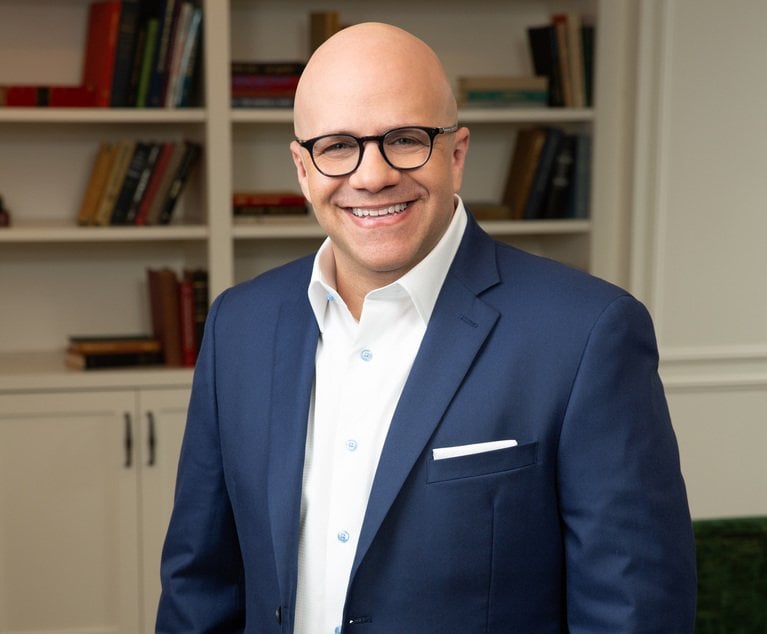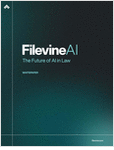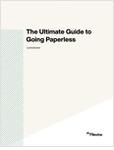These 13 best practices are in response to specific issues that have come up repeatedly this week in my coaching sessions with law firm partners and associates. Part 1 applies to everyone, Part 2 applies to partners, and Part 3 applies to associates.
Part 1: Everyone
1. Adopt Flexible Work from Home (“WFH”) Time Management and Goal-Setting Strategies. Time management and goal-setting challenges—always among the top concerns for the partners and associates my colleagues and I coach—are exacerbated now that work environments have been upended and uncertainties abound (e.g., Is Deal X fast-tracked or on hold? How do COVID-19 laws and regulations affect Client Y? How can I most effectively do business development from home to keep my practice going?).
To accommodate rapidly changing demands, consider making three lists:
- “Critical Today” (the top 2-4 things—both personal and professional—that you absolutely, positively, must finish today);
- “Opportunity Tasks” (the 10-20 less urgent personal/professional tasks that you will do over the next week or so as your calendar permits (with the “Critical Today” items pulled from this list daily); and
- “The Big Master List” (this is the uber-long list of everything you should do or want to do, but don’t yet know when or how). Update the “Opportunity Tasks” list periodically by pulling from The Big Master List.
(I give credit to Michael Linenberger, whose “One Minute To-Do List” book lays the foundation for these categories.)
Separating your tasks into three levels of daily and weekly priority will help you avoid that tendency that so many of us high-achieving lawyers share: to consider everything a top priority. Which, as we all know, results in nothing being a top priority.
By giving yourself permission to relegate some things to the B-List (and even the C-List), you will be more productive (not to mention, feel better about yourself) because your energy will remain focused on those A-List activities you intentionally chose to do. And, because the three lists are fluid, they can evolve along with pandemic-related changes and other changing circumstances.
2. Make Realistic Agreements at Home and Honor Them. Make a pact with your partner and your older children about when they can/can’t bother you, and, equally important, when you will/will not be working and when/how you will make yourself available to them. But recognize that implementing this can be a lot harder than it sounds. Here are some resources that might be of value:
- If you need help stopping work because you’ve become accustomed to allowing work to fill (or, perhaps more accurately, to supplant…) your “downtime,” here’s a resource.
- If you’re a procrastinator by nature and that’s getting in your way, here’s a resource.
- If you struggle to set boundaries with your family, here are a couple of resources.
- If you need help sticking to the boundaries that you’ve set because you consistently want to do “just one more thing” before stopping work for the day, here’s a short resource.
- If you’d like to do one of the above but feel overwhelmed by the challenge of changing an ingrained habit, here’s a resource (that I wrote).
3. Adjust Your Expectations and Manage Others’. Some aspects of WFH are positive (e.g., a more relaxed work environment has been shown to enhance creativity, and limiting travel leaves more time for productive billable work). But others may suffer, especially initially (e.g., many parents will not be able to devote a full workday to billable work if they have to watch young children or help older children with their new online-learning demands in real-time).
The more all of us can fully accept this truth at the outset, the smoother and easier this transition will be for everyone, both individually and on an organizational level.
4. Sharpen Your Delegation/Supervision/Feedback Skills. In a remote working world, everyone’s delegation/supervision/feedback skills must be even better—more frequent, more clear and more realistic—than usual.
Many law firms have already offered training and/or coaching on these topics, so they have excellent resources available to help you sharpen those skills. If you’d benefit from help, your talent or professional development departments will gladly share their expertise and resources with you. And here’s another resource that might be helpful.
Part 2: Partners:
5. Establish Protocols to Avoid Mishaps. If you are leading or managing a team—as soon as practicable, given this week’s frenzied client demands—initiate a conversation with your working groups to make sure everyone is clear about when and how individual team members are reachable and available to do substantive work and to field immediate phone calls/emails/etc. And have a Plan B for each person. This should include all lawyers, paralegals, and administrative and business services professionals.
Don’t assume you will always be able to reach the person you need precisely when you need him or her. I’ve heard stories this week from the big firm lawyers I coach about technology and phone reception challenges, and about senior team members’ belated responsiveness creating bottlenecks that derailed at least one transaction as financing was pulled. While these stories are hopefully rare and will become less of a threat as we all adjust to WFH, the clearer your communication protocols (in both “upstream” and “downstream” directions), the better off your clients, you, and the people on your team will be.
6. Recognize Real-Life Constraints. Top-tier client service is crucial, especially in this uncertain time. But the reality of our collectively quarantined lifestyle means that your colleagues are dealing with difficult personal circumstances (e.g., needing to tend to children or elders during the workday, having two spouses work from home and juggling physical space limitations in a cramped apartment, having a spouse who works in health care and is in isolation or unavailable to devote time to the family, etc.). Clients have the same challenges.
As the saying goes, “it is what it is,” so, to the extent you can plan around these constraints, things will run more smoothly. If you’re unsure about how to have a productive conversation about this and would like support, your law firm’s internal talent and professional development teams are an often underutilized yet valuable resource.
7. A Short but Important Point about Humanity and Connection. While anyone who has earned the title of law firm partner obviously values personal relationships, it’s worth mentioning that I’ve long observed a disconnect between the partners and associates I coach: It’s not uncommon for partners to say, “We value this associate and we have a great relationship,” while associates say, “Except for Partner X, I feel like I’m fungible and nobody at the firm cares about me.” (And this sentiment comes from the associates whom firms consider “keepers” given those are the associates in whom firms generally invest for executive coaching.)
When everyone is physically disconnected and anxiety is higher than normal, it’s especially important to remind ourselves to tap into our humanity and connect. Enough said. Here’s a very short worthwhile post on this topic by one of my colleagues.
8. Have A Personal Call, Plus Regular Check-Ins. We’ve all been inundated with articles about the need to “overcommunicate” when working remotely. This is especially true at big law firms, where supervisory lawyers may not know—especially when people aren’t in the office—everyone’s commitments on other matters. When we add in the likelihood that assignments and workloads may suddenly pivot as new pandemic-related regulations and laws get passed, litigation matters get stayed and deal terms get changed, frequent communication becomes even more important.
If you are a practice group leader or if you lead a working team, personally call—and do make it a call, not an email—each associate and staff member as soon as practicable to ask how he or she is holding up and whether there is anything specific that you or the firm can do to help support that person. Then calendar—or, depending on bandwidth and personal style, delegate to senior lawyer(s) or practice manager(s) in your group—a regularly scheduled periodic check-in call.
Even if only 10-15 minutes, a regular phone or video call with each person will help foster loyalty and connection and also (i) allows for associates and staff to communicate their workloads and any personal time constraints, (ii) invites a feedback discussion without everyone feeling that they must reach an artificial (and likely intimidating) threshold first, and (iii) allows associates and staff in your practice group to share how they and their families are doing (which unfortunately, will be increasingly important as we all start to know personally people who have been afflicted by COVID-19).
9. People Want to Hear Directly from Their Leaders. In times of uncertainty, rumor mills go into overdrive—especially without the benefit of face-to-face interactions—as people outside the inner circle of management scramble to make sense of data points and try to fill any information vacuum. While none of us has a crystal ball to know what the economic effects of COVID-19 will be ultimately, and while discretion is required, leadership should be as proactively forthcoming as practicable to all internal stakeholders. This means communicating—with consistent/unified messaging and transparency, to the extent possible—as time goes on about what’s going on with the firm, its work and its clients. A direct approach will calm nerves and engender loyalty, and it will pay dividends once the COVID-19 pandemic is thankfully behind us.
Part 3: Associates:
10. Be Realistic and Transparent about Your Own Constraints. Anticipate and clearly communicate your own WFH constraints. For example, if you are responsible for a young child during a conference call (as we all know, the “TV or device as babysitter” strategy is not failproof), make sure others on your team know that so they can either try to reschedule the call or can help you artfully finesse things (especially if it is not an internal call).
Both as a longtime practicing lawyer and now as a leadership and executive coach, I’ve seen many lawyers, especially younger lawyers, get themselves into trouble because they think sharing their constraints will make them appear uncommitted. But the clients, team members and other people who are counting on you would much rather you be transparent, realistic and honest upfront than try to be a hero and miss a deadline, end up not doing something you promised to do, or look unprofessional (although, admittedly, the standard of what “looks unprofessional” will undoubtedly change as WFH, especially with children in the house, becomes the norm).
11. Take Ownership of Your Work – and Be Realistic About What that Means. While taking ownership of one’s work has always been important, it’s even more so when nobody is in the office, since it’s now impossible for others to see what you’re working on and to help make sure you’re on track. And, since many senior lawyers are devoting all their attention to helping clients navigate and comply with COVID-19-related legal requirements, them being able to count on and trust their more junior colleagues is even more important.
This means that, regardless of your level of seniority, it’s incumbent upon you to ask questions initially to make sure you’re clear on the following: how/of whom/when you should ask questions; how often you should touch base or check in; what a “finished” work product should look like; exactly when it’s due (e.g., does “Close of Business” (“COB”) mean 5 pm, or does it mean midnight?); to whom the work product must be given; and in what form (email? project software? other?).
12. Think About Ways You Can Contribute. Some practice areas (e.g., labor and employment, many transactional and regulatory practices) have been swamped this week, while other practice areas are slow. If your workload has slowed, you have opportunities to contribute. While others are busy helping clients navigate crisis management and billable work, consider what you might do to pitch in to help your firm and busier colleagues.
Here are a few suggestions for adding value:
- Maybe your firm’s COVID-19 task force could use help pulling together a 50-state survey to advise clients on new legislation;
- Familiarize yourself with legal developments and offer to draft a client alert;
- Do business development (e.g., virtual coffee or wine) with the client contacts at your level to learn more about how they’re doing and how you and your firm can support them and their organizations through this crisis;
- Start educating yourself about a new practice area that is relevant to COVID-19 (e.g., insurance coverage, bankruptcy, labor & employment, or ask your practice group leader to recommend others);
- Some firms are encouraging slower associates to “shadow” lawyers in busier practices to learn more about that area of law, so consider that. (Before you propose that idea, make sure those lawyers are not so busy at the moment that your offer would be perceived as tone-deaf.);
- Pro bono work is generally a great option when billable work is down. But confirm first that such work aligns with the priorities of firm leadership.
The more proactive and creative you can be about contributing, the better.
13. Ask for, Learn from, and Act on Feedback. One of your most important jobs as an associate is to grow professionally by absorbing, learning from and acting on whatever comments/feedback more senior lawyers give you. And—especially in the time of WFH—to proactively reach out to request that feedback if it’s not forthcoming. That’s how you’ll be able to add value to your clients during this difficult time (not to mention, become a more valuable lawyer with maximal professional options for yourself).
If you’re not sure how best to ask for feedback, here’s a resource that might be helpful:
As we all struggle to balance our commitments with managing our own and everyone else’s uncertainty, I wish each of you, your loved ones and your colleagues much health and safety.
Lauren Krasnow is a coach with Volta Talent Strategies, based in New York and Boston. Previously a lawyer in several large law firms and then a legal recruiter, Krasnow now focuses on helping lawyers manage and find fulfillment in their careers. At Volta, she serves as a leadership/executive coach and a career transition coach. She regularly works with law firm leaders, partners and associates, as well as with senior-level members of firms’ business services teams.
NOT FOR REPRINT
© 2024 ALM Global, LLC, All Rights Reserved. Request academic re-use from www.copyright.com. All other uses, submit a request to [email protected]. For more information visit Asset & Logo Licensing.


 Image: Shutterstock
Image: Shutterstock







